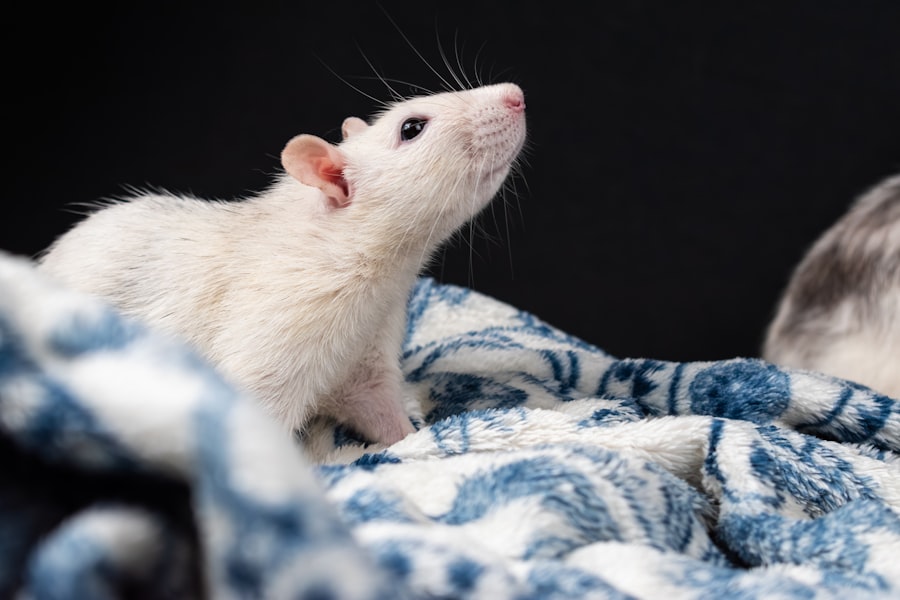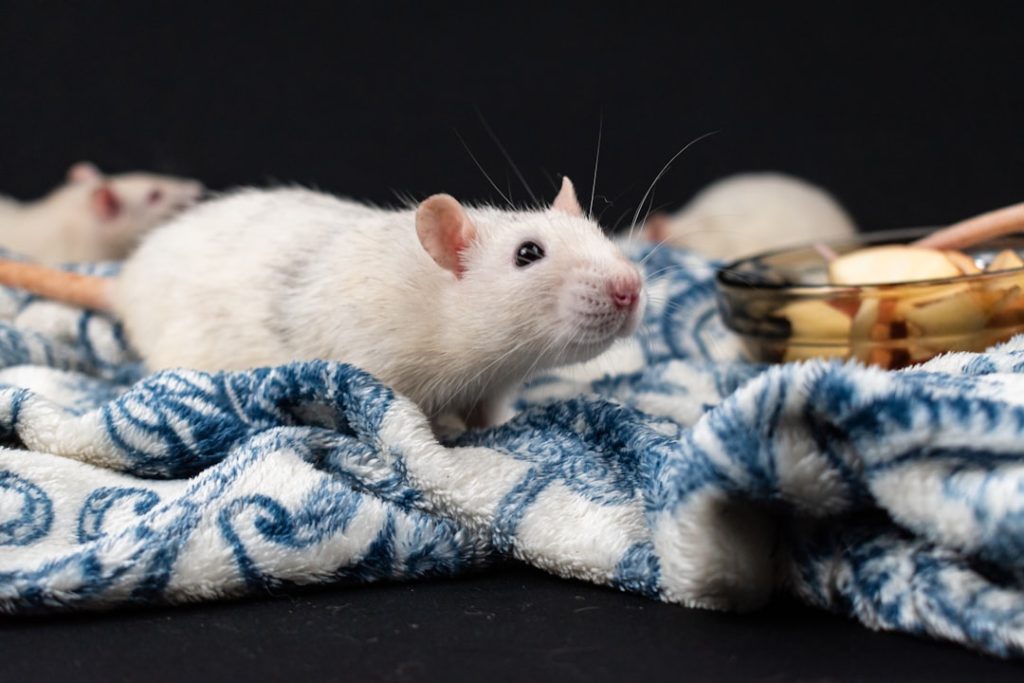Rats are highly adaptable and intelligent creatures that can cause significant damage to chicken coops and yards if not properly managed. Understanding their behavior is crucial in effectively preventing and controlling infestations. Rats are nocturnal animals, meaning they are most active during the night, making it challenging to spot them during the day.
They are also prolific breeders, with a single female capable of producing up to 12 litters of 20 or more offspring in a year. This rapid reproduction rate can quickly lead to a large infestation if not addressed promptly. Rats are opportunistic feeders and will consume a wide variety of food, including chicken feed, grains, fruits, vegetables, and even small animals.
They are also excellent climbers and can squeeze through small openings, making it essential to secure all potential entry points to chicken coops and storage areas. Additionally, rats are known to carry diseases such as leptospirosis, salmonellosis, and hantavirus, posing a health risk to both chickens and humans. By understanding the behavior of rats, chicken owners can implement targeted strategies to prevent infestations and protect their flock.
Table of Contents
- 1 Implementing Proper Sanitation Practices
- 2 Securing Chicken Feed and Grain Storage
- 3 Installing Rat-Proof Fencing and Barriers
- 4 Using Natural Repellents and Deterrents
- 5 Regularly Inspecting and Maintaining Chicken Coops and Yards
- 6 Seeking Professional Help if Rat Infestation Persists
- 7 FAQs
- 7.1 What are some natural ways to keep rats away from chickens?
- 7.2 Are there any commercial products that can help keep rats away from chickens?
- 7.3 Why is it important to keep rats away from chickens?
- 7.4 What are some signs that rats may be present in the chicken coop?
- 7.5 What should I do if I have a rat infestation in my chicken coop?
Key Takeaways
- Rats are nocturnal and highly adaptable creatures, making it important to understand their behavior in order to effectively control and prevent infestations.
- Proper sanitation practices, such as keeping chicken coops and yards clean and free of food scraps, are essential in deterring rats from infesting the area.
- Securing chicken feed and grain storage in rodent-proof containers can help prevent rats from accessing a readily available food source.
- Installing rat-proof fencing and barriers around chicken coops and yards can help keep rats out and protect the poultry from potential harm and disease transmission.
- Natural repellents and deterrents, such as peppermint oil and predator urine, can be used to discourage rats from entering chicken coops and yards. Regularly inspecting and maintaining these areas is crucial in preventing rat infestations and ensuring the health and safety of the poultry. If rat infestation persists despite these efforts, seeking professional help from pest control experts is recommended.
Implementing Proper Sanitation Practices
Remove Attractants
Regularly removing spilled chicken feed, securing garbage in tightly sealed containers, and eliminating standing water sources can help deprive rats of easy access to food and water. By doing so, chicken owners can significantly reduce the likelihood of infestations.
Proper Waste Management
In addition to maintaining cleanliness, proper waste management is vital in preventing rat infestations. Chicken droppings and litter should be promptly removed and disposed of in a designated area away from the coop.
Create an Uninviting Environment
Regularly cleaning and disinfecting the coop and nesting areas can help deter rats from establishing a presence. By implementing proper sanitation practices, chicken owners can create an environment that is less attractive to rats, ultimately reducing the risk of infestation.
Securing Chicken Feed and Grain Storage
Securing chicken feed and grain storage is paramount in preventing rats from accessing a readily available food source. Rats are notorious for their ability to gnaw through various materials, including plastic, wood, and even metal, making it essential to store feed in durable, rat-proof containers. These containers should have tight-fitting lids and be elevated off the ground to prevent rats from accessing the contents.
Additionally, any spilled feed should be promptly cleaned up to avoid attracting rats to the area. It is also important to inspect the storage area regularly for signs of damage or potential entry points for rats. Any openings or cracks should be sealed with durable materials such as metal flashing or concrete to prevent rats from gaining access.
By securing chicken feed and grain storage, chicken owners can effectively limit rats’ access to a vital food source, reducing the risk of infestation.
Installing Rat-Proof Fencing and Barriers
Installing rat-proof fencing and barriers around chicken coops and yards is an effective way to prevent rats from gaining access to the premises. Rats are skilled climbers and diggers, making it essential to create barriers that are both above and below ground level. Hardware cloth with a small mesh size should be used to enclose the coop and yard, extending at least 12 inches below ground to prevent rats from burrowing underneath.
In addition to fencing, barriers such as concrete or metal skirting can be installed around the perimeter of the coop to further deter rats from gaining access. It is important to regularly inspect the fencing and barriers for any signs of damage or potential entry points and promptly repair any issues to maintain their effectiveness. By installing rat-proof fencing and barriers, chicken owners can create a physical barrier that limits rats’ ability to enter the coop and yard, reducing the risk of infestation.
Using Natural Repellents and Deterrents
Using natural repellents and deterrents can be an effective way to discourage rats from entering chicken coops and yards. Certain plants such as mint, lavender, and marigolds are known for their ability to repel rodents due to their strong scents. Planting these around the perimeter of the coop can help deter rats from approaching the area.
Additionally, natural deterrents such as predator urine or peppermint oil can be strategically placed around the coop to create an unpleasant environment for rats. Another natural deterrent is the use of sound or vibrations to disrupt rats’ behavior. Ultrasonic devices emit high-frequency sound waves that are unpleasant for rodents, while vibrating devices create a disturbance that can deter rats from staying in the area.
By using natural repellents and deterrents, chicken owners can create an environment that is less appealing to rats, ultimately reducing the likelihood of infestation.
Regularly Inspecting and Maintaining Chicken Coops and Yards

Inspecting the Coop Structure
Regular inspections should include checking the coop structure for any signs of damage, such as holes or gaps that could serve as entry points for rats.
Maintaining a Rat-Free Yard
Maintaining a well-kept yard is crucial in reducing hiding spots for rats. This can be achieved by trimming vegetation and removing clutter. A clean and tidy yard makes it difficult for rats to hide and nest.
Proactive Prevention
By regularly inspecting and maintaining chicken coops and yards, chicken owners can proactively identify and address potential issues that could lead to rat infestations. Promptly addressing any identified vulnerabilities or entry points can significantly reduce the risk of infestation.
Seeking Professional Help if Rat Infestation Persists
In some cases, despite best efforts, rat infestations may persist, requiring professional assistance to effectively manage the problem. Pest control professionals have the expertise and resources to assess the extent of the infestation and implement targeted strategies to eradicate rats from the premises. They can also provide guidance on long-term prevention measures to minimize the risk of future infestations.
When seeking professional help, it is important to choose a reputable pest control company with experience in dealing with rat infestations in agricultural settings. The chosen professionals should use safe and humane methods for managing rat populations while prioritizing the safety of chickens and other animals on the property. By seeking professional help if rat infestation persists, chicken owners can effectively address the problem and implement long-term prevention strategies to protect their flock.
In conclusion, preventing and controlling rat infestations in chicken coops and yards requires a comprehensive approach that addresses various aspects of rat behavior and vulnerabilities on the property. By understanding rat behavior, implementing proper sanitation practices, securing feed storage, installing barriers, using natural repellents, regularly inspecting and maintaining the premises, and seeking professional help if needed, chicken owners can effectively minimize the risk of rat infestations and protect their flock from potential harm. With proactive management strategies in place, chicken owners can create a safe and healthy environment for their chickens while minimizing the risk of rat infestations.
If you’re looking for tips on how to keep rats away when you have chickens, you may also be interested in learning about the importance of providing a secure coop for your turkeys. Check out this article to learn more about the benefits of having a coop for your turkeys and how it can help keep them safe from predators like rats.
FAQs
What are some natural ways to keep rats away from chickens?
Some natural ways to keep rats away from chickens include keeping the chicken coop clean and free of food scraps, using rodent-proof feeders and containers, and keeping the surrounding area free of clutter and debris.
Are there any commercial products that can help keep rats away from chickens?
Yes, there are commercial products such as rat traps, bait stations, and ultrasonic repellents that can help keep rats away from chickens. It’s important to follow the instructions carefully and use these products in a safe and responsible manner.
Why is it important to keep rats away from chickens?
Rats can pose a threat to chickens by stealing their food, spreading diseases, and even preying on young chicks. Keeping rats away from chickens helps to ensure the health and safety of the flock.
What are some signs that rats may be present in the chicken coop?
Some signs that rats may be present in the chicken coop include droppings, gnaw marks on feed containers, and burrows or nests in the surrounding area. It’s important to regularly inspect the coop for these signs and take action if rats are detected.
What should I do if I have a rat infestation in my chicken coop?
If you have a rat infestation in your chicken coop, it’s important to take immediate action to address the problem. This may involve using traps or bait stations, sealing off entry points, and keeping the coop and surrounding area clean and free of food sources. In some cases, it may be necessary to seek professional pest control assistance.
Meet Walter, the feathered-friend fanatic of Florida! Nestled in the sunshine state, Walter struts through life with his feathered companions, clucking his way to happiness. With a coop that’s fancier than a five-star hotel, he’s the Don Juan of the chicken world. When he’s not teaching his hens to do the cha-cha, you’ll find him in a heated debate with his prized rooster, Sir Clucks-a-Lot. Walter’s poultry passion is no yolk; he’s the sunny-side-up guy you never knew you needed in your flock of friends!







